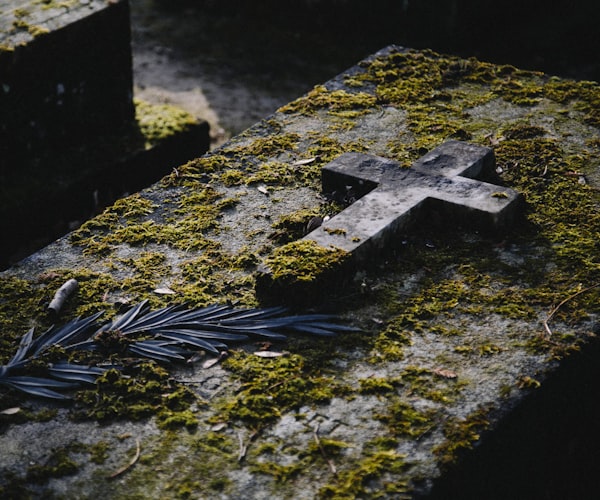A Moment to Ponder
How do you feel about funerals? This blog will go up one day after what would have been my grandpa’s 89th birthday. As I was back home to attend the service following his death I heard a common refrain, “I hate funerals.” This has to be one of the most common phrases I’ve heard in my adult life. We even avoid the term funeral, and substitute memorial service or celebration of life to put a happier spin on the event. But whatever we call it, one reality ties them all together: they take place post-mortem.
This is an uncomfortable reality for many of us to face. We don’t like to think about death. But one of the great blessings of a funeral is that it forces you to ponder your own death. In the Old Testament, there is a book of wisdom called Ecclesiastes. And in Ecclesiastes 7:1-4 we find these words,
- A good name is better than precious ointment, and the day of death than the day of birth. It is better to go to the house of mourning than to go to the house of feasting, for such is the end of all mankind, and the living will lay it to heart. Sorrow is better than laughter, for by sadness of face the heart is made glad. The heart of the wise is in the house of mourning, but the heart of fools is in the house of mirth.
The main thrust of the thought here is simple: parties are great. We all love to celebrate births, weddings, graduations, birthdays, and anniversaries. But as fun and enjoyable as those moments are, they are fleeting. And so the good they do us is short-lived. But those moments when we are confronted with the reality of mortality: they can be of enduring benefit.
How Are You Living?
The first thing we need to consider is in the beginning of verse one, a good name is better than precious ointment. In the Hebrew society in which Ecclesiastes was written, they practiced burial. But they didn’t have refrigeration, nor did they use any embalming methods. Which left you with an odor problem. The way they addressed that was by wrapping bodies with pounds upon pounds of spices, aloes, and perfumes. But what the writer makes clear to us is this: when you’re dead, you know what would really stink? Having lived a rotten life. Perfume can’t cover that stench. But a good name, that leaves an aroma which no perfume can match. So, how are you living? When you’re gone, will people actually miss you? Will they have something true to say, or will they have to make up memories to make you sound better in retrospect?
What Comes After This?
The second, and more important, thing to ponder is this: when you’re dead, you’re not finished. This truth nags at us. We all intuitively know that whatever is in the urn or the casket is not all there is to that person. So when it’s your turn to take a ride to the funeral home, where will the rest of you be? What happens to your soul? Not having an answer to that question leaves us with a looming sense of dread that we either acknowledge and wrestle with, or attempt to drown out or ignore.
Scripture tells us where the gnawing comes from. You were created by God to know God (Genesis 1:26-27, Revelation 21:3). But we all have ignored him, rejected him, and failed to live in keeping with his perfect law. This is what Scripture calls sin, and it separates us from the God by and for whom we were made (Romans 3:23). In fact, we’re told it earns us his just condemnation. And if we continue in that rejection and ignoring of God, death is something we should fear (John 3:36). But we don’t have to.
God’s Answer
God sent his Son into the world. God the Son took on human flesh (John 1:14) as Jesus of Nazareth and lived a perfect human life, the sort of life we were each meant to live. But he didn’t just live. He was crucified, murdered, without legitimate cause. And when he died, he not only bore the weight of scorn and shame from those around, but he bore the penalty of God’s wrath-not wrath meant for him, but wrath that is deserved by you and me. He paid it all. He died for your sin so that you could be forgiven (1 Peter 2:24, Romans 5:6-10). He then rose three days later, and he now promises life to all who trust in him for their life: Everyone who believes in me, though he die, yet shall he live (John 11:25). You can know Christ, and in knowing him, know what comes after this. You don’t have to fear death.
So go to the house of mourning and consider your own life. Are you ready for that day?

